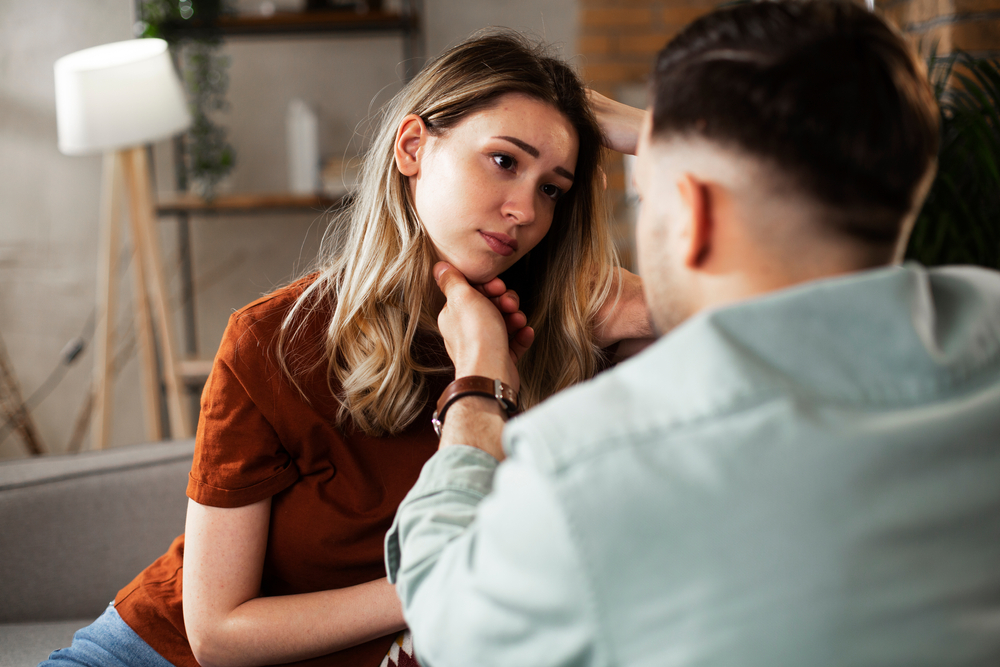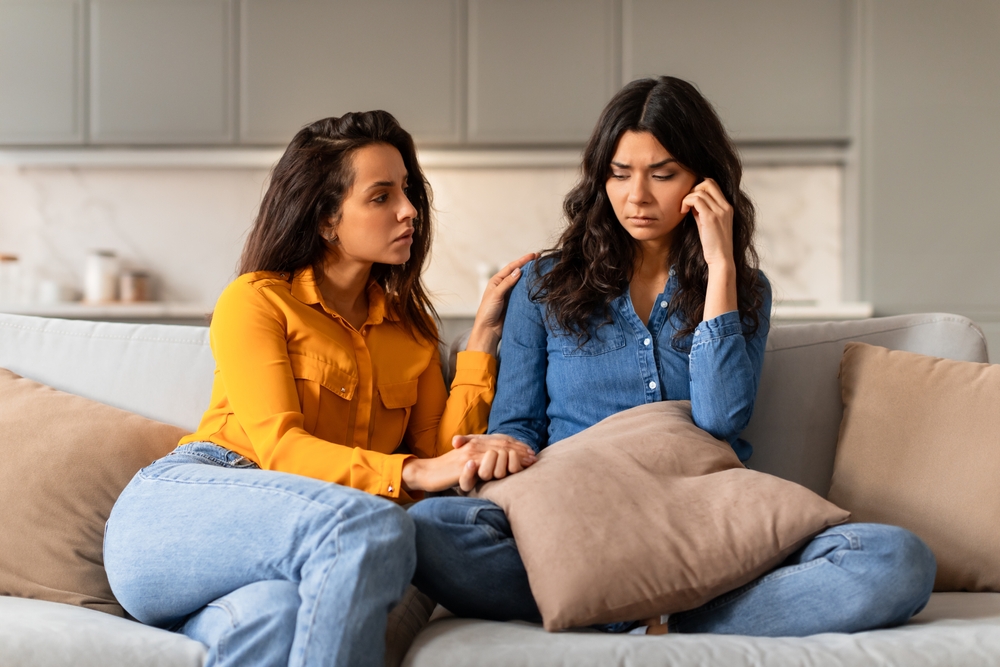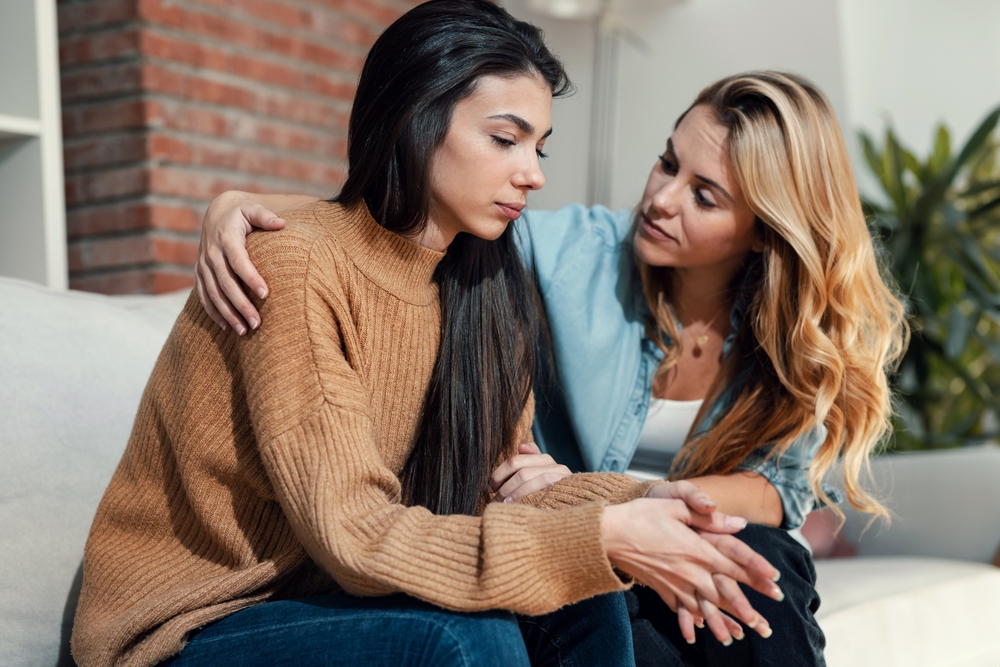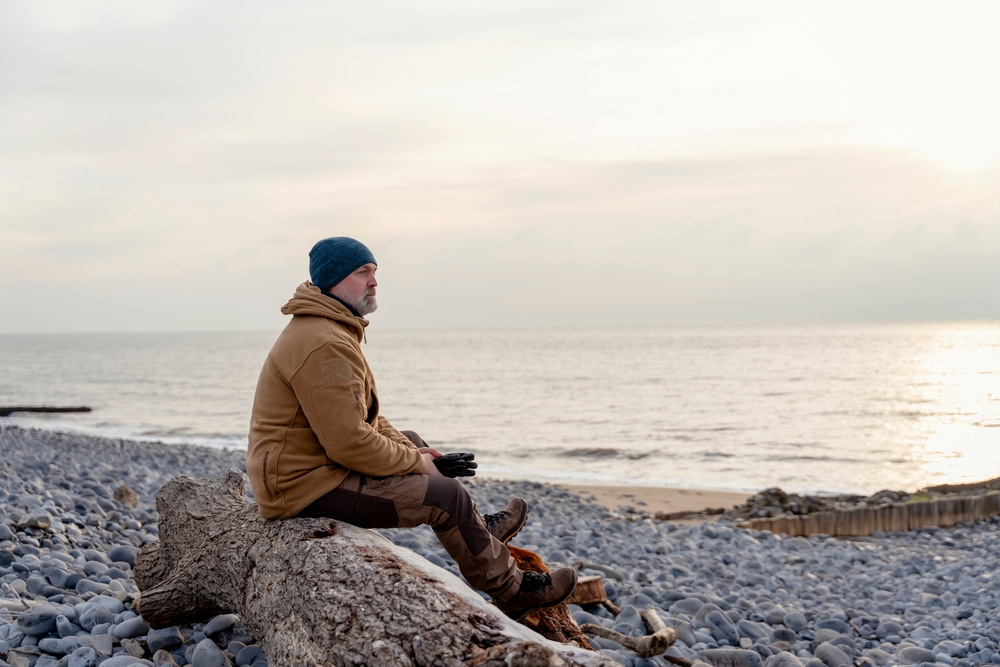Loneliness in childhood doesn’t just fade away—it lingers, quietly shaping the way you see yourself, relationships, and the world long into adulthood. It’s not always the loud, obvious neglect; sometimes it’s the subtle absence of emotional connection, the lack of someone who sees you. And when you grow up lonely, you carry that ache into every interaction—you become hyper-aware of rejection, terrified of being too much, and quietly convinced you’ll always have to figure it out alone. These experiences aren’t just “sad”—they’re formative and leave marks that don’t fade easily.
If any of these moments feel painfully familiar, you’re not imagining it—and you’re not alone. This list isn’t here to reopen wounds; it’s here to name them, so you can stop blaming yourself for how you learned to survive. Here are 13 experiences that hit especially hard for those who grew up lonely—and why they’re so hard to shake.
1. You Pretend You’re Fine Even When You’re Falling Apart

You learned early that your feelings weren’t a priority, so you learned to swallow them whole. No one asked how you were doing, so you stopped expecting them to care. Even now, you paste on a smile and say, I’m fine, while your insides feel like a storm. It’s not about strength—it’s about survival.
According to a study published by the National Institutes of Health, people who frequently suppress their emotions often mask their inner feelings and reduce outward emotional expression, but this comes at a cost: they experience less positive emotion and more negative feelings, including a sense of inauthenticity. This emotional suppression may help in the short term, but can lead to long-term emotional difficulties and stress1.
2. You Feel Like A Bystander In Other People’s Lives

You’ve always been the observer—the one who listens, nods, smiles, but rarely gets invited into the center of the circle. As a kid, you watched friendships bloom around you, always feeling like you were on the outside looking in. And now, that pattern repeats: you cheer for others but quietly wonder why no one’s cheering for you. It’s a cycle that makes you question if you’re even worth being chosen.
Loneliness trains you to shrink yourself. But you were never meant to be invisible. The right people will see you—you don’t have to audition for your own life.
3. You Feel Uncomfortable Being the Center of Attention

When you’ve grown up lonely, attention feels like a spotlight you never asked for. Compliments, praise, even simple curiosity from others make you squirm. You’re so used to being overlooked that being seen feels like a trap—like any moment now, they’ll realize you’re not worth the hype. So you downplay, deflect, and disappear.
But you deserve to be seen. Being noticed doesn’t make you a fraud. It makes you human nd worthy. Research published in the Directory of Open Access Journals (DOAJ) investigates how loneliness affects attention, showing that lonely individuals exhibit a heightened attentional bias toward negative social stimuli, which can make being the center of attention feel uncomfortable and threatening.
4. You Can’t Tell If People Genuinely Like You

Your brain is wired for hypervigilance, always scanning for rejection. So when someone’s nice to you, you wonder: Do they mean it? Or are they just being polite? It’s exhausting—this constant questioning of other people’s intentions. And it keeps you from ever fully trusting that you’re wanted, just as you are.
That doubt isn’t your fault—it’s the residue of loneliness. But not everyone is performing kindness. Some people do like you. And you’re allowed to believe them.
5. You Struggle To Ask for Help When You Desperately Need It

Growing up lonely means you learned that no one’s coming to rescue you. So you became fiercely self-reliant—not because you wanted to, but because you had to. Now, even when you’re drowning, you won’t reach out. You tell yourself, I’ll figure it out, because asking for help feels like admitting defeat. As highlighted in a comprehensive study published by the National Center for Biotechnology Information, higher self-reliance is linked to lower intentions to seek help from informal and professional sources, largely because it reduces perceived social support, which is crucial for encouraging help-seeking behavior.
But here’s the truth: you don’t have to prove your worth by going it alone. The people who care want to show up for you. Let them. You deserve support.
6. You Feel Guilty When People Are Kind To You

Loneliness warps your sense of worth. When someone shows you kindness, your gut reaction isn’t gratitude—it’s guilt. You think, Why are they doing this for me? I don’t deserve it. That voice isn’t the truth—it’s the echo of neglect.
You’re not a burden for needing love. You’re not taking up too much space by being cared for. You deserve kindness, not because you’ve earned it, but because you exist.
7. You Struggle To Make Deep, Lasting Friendships

Superficial connections? You can manage those. But letting someone really in—sharing your fears, your weirdness, your messy inner world—that feels impossible. It’s not that you don’t want closeness; it’s that you’re terrified of being let down. So you keep people at arm’s length, craving intimacy but building walls to keep it out.
That fear makes sense—but it’s also keeping you stuck. Real connection requires risk. And you are worthy of it. In a detailed study published in the journal Personal Relationships, researchers found that social vulnerabilities such as social anxiety and loneliness negatively impact the quality of friendships, especially for young adults who primarily interact with friends offline or in both online and offline settings. Interestingly, the study highlights that for those who mainly engage with friends online, these social vulnerabilities do not significantly affect friendship quality.
8. You Worry That If You Share Your Joy, It’ll Be Taken Away

When you grew up without emotional support, happiness always felt fleeting. Any good thing came with a side of fear: How long will this last? When will it be ruined? So even now, when something good happens, you struggle to fully enjoy it. You’re waiting for the other shoe to drop.
That’s not just pessimism—it’s trauma. But here’s the truth: you can hold joy without apology. It’s safe to be happy, even if it feels unfamiliar.
9. You Over-Think Every Interaction (For Days)

One conversation, one glance, one moment—and you replay it a hundred times. Did I say the wrong thing? Did they think I was awkward? Should I have done it differently? It’s mental torture, but it feels safer than risking another rejection. Your brain learned to scan for mistakes because mistakes used to mean isolation.
That’s not overthinking—it’s self-preservation. But you’re allowed to stop the mental autopsy. Most people aren’t analyzing you the way you’re analyzing yourself. And you deserve the freedom to just be.
10. You Struggle To Believe You’re Truly Loved

Even when people say they care, you doubt it. You wonder if they’re just being nice, if they feel obligated, or if they’ll eventually realize you’re not worth it. It’s not that you’re unlovable—it’s that you grew up in an environment where love was scarce, conditional, or absent altogether. So now, you carry that story into every relationship.
But love isn’t a scarce resource. It’s not something you have to earn or prove you’re worthy of. You are loved—not despite your scars, but because of them.
11. You Feel Invisible In Group Settings

You could be in a room full of people and still feel like you don’t exist. You blend into the background, half-listening, half-faking interest, but never really feeling like you belong. It’s not that you don’t want to connect—it’s that you’re convinced no one sees you. That invisibility isn’t in your head—it’s a learned survival tactic.
But you deserve to take up space. Your presence matters, even if you’re not the loudest in the room. The right people will notice you, and the wrong ones never mattered anyway.
12. You Find Comfort In Loneliness (Even Though You Hate It)

It’s a twisted paradox: you crave connection, but when it shows up, it feels foreign, even suffocating. So you retreat into solitude, back into the familiar ache of being alone. It’s not because you don’t want love—it’s because loneliness feels safer than risking rejection. That comfort isn’t real—it’s a trap.
You weren’t meant to live in isolation. The ache for connection is proof you’re still alive—and still worthy of love. Don’t settle for loneliness just because it’s familiar.
13. You Feel Like You Have to Earn Your Place In People’s Lives

You believe love is conditional—that you have to prove your worth, be useful, or add value to “deserve” a spot in someone’s life. It’s an exhausting, endless cycle of over-giving, over-performing, and never feeling quite enough. But you don’t have to audition for love. You don’t have to be anyone’s emotional workhorse to stay in their orbit.
You are not a burden—you are a human. And the right people won’t make you feel like you have to earn your place. They’ll just be grateful you’re in their life.
Natasha is a seasoned lifestyle journalist and editor based in New York City. Originally from Sydney, during a stellar two-decade career, she has reported on the latest lifestyle news and trends for major media brands including Elle and Grazia.


